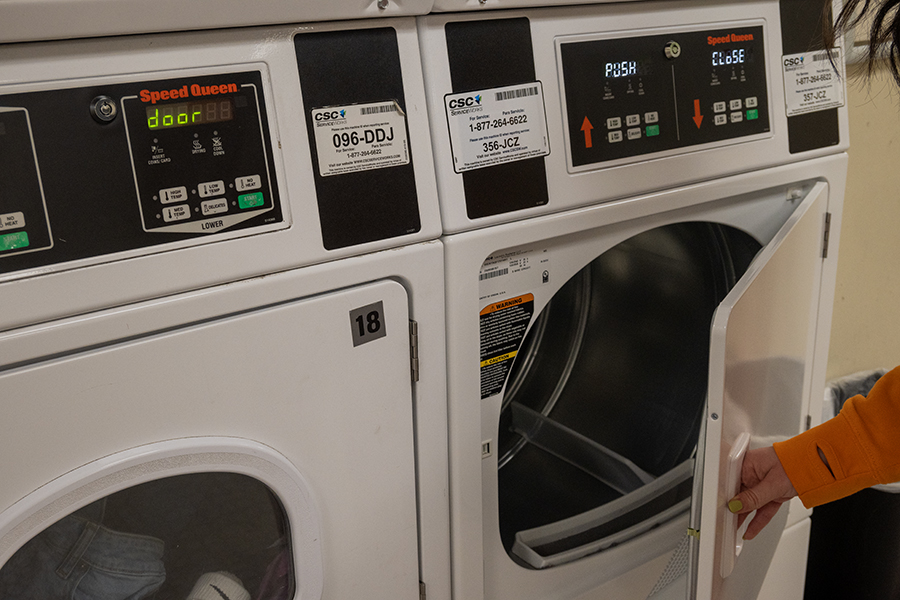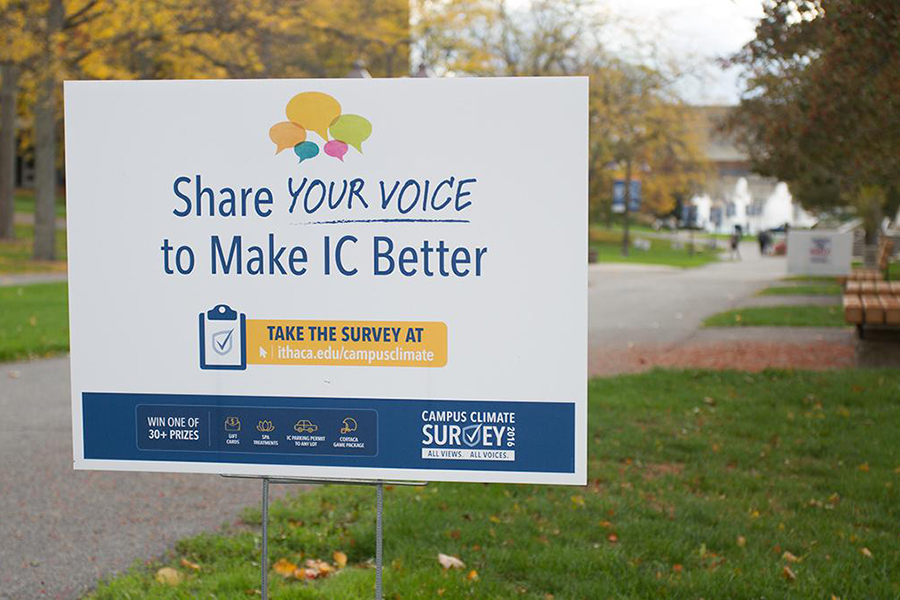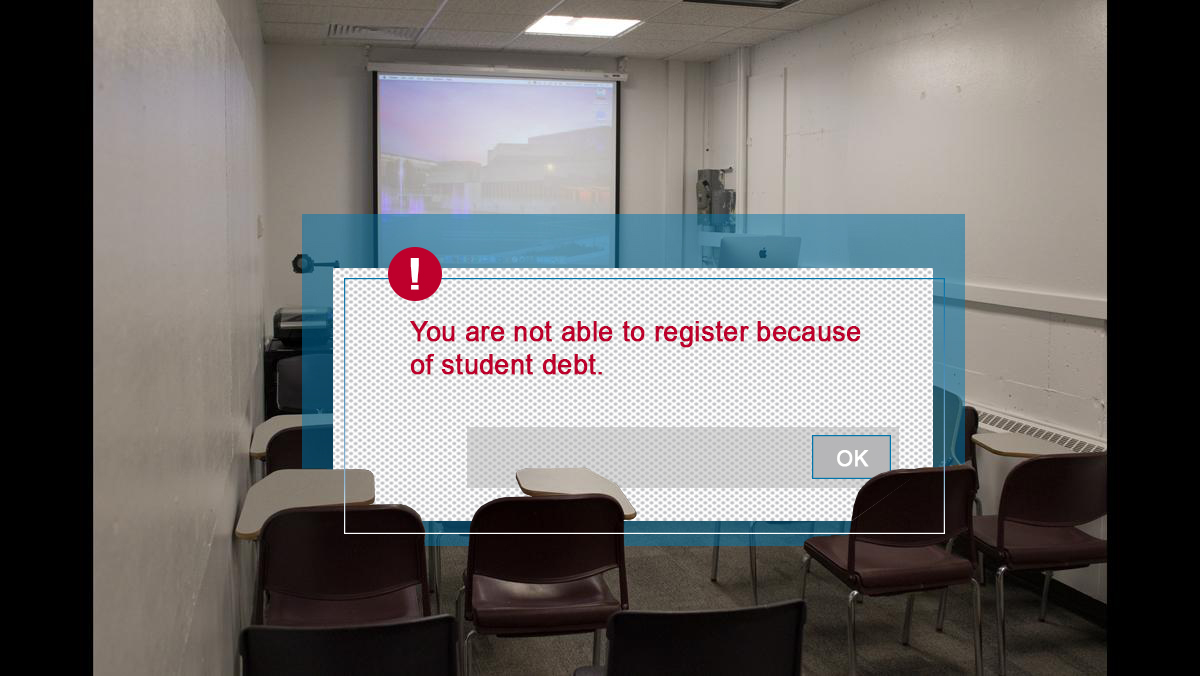Media experts discussed the challenges of covering the Russia-Ukraine war in independent and mainstream media in a round table discussion held via Zoom Sept. 7 at Ithaca College.
The event was co-sponsored by the Park Center for Independent Media (PCIM) and the Finger Lakes Environmental Film Festival (FLEFF), both of which have been partners in producing independent media for a long time. Around 100 people — which included students, faculty, journalists and global citizens from across the world — attended the event.
The guest speakers were Natalie Gryvnyak, a journalist and founder of the information and production agency, In-features; Masha Shpolberg, assistant professor of Film and Electronic Arts at Bard College; and Zenon Wasyliw, professor at the Department of History at Ithaca College. All speakers’ roots traced back to Ukraine. The round table was moderated by Raza Rumi, director of the PCIM.
Rumi began the discussion by describing the magnitude of the violence and how the Russia-Ukraine war affected citizens. According to NPR, over 13 million Ukranians have been displaced, 9,000 military personnel from Ukraine have lost their lives and 20% of Ukrainian land has been occupied by Russia.
“One must … uphold fairness and accuracy while covering war, and above all, show the magnitude of suffering caused by such conflicts,” Rumi said.
The Russia-Ukraine conflict began with Russia launching an invasion of Ukraine Feb. 24. However, the history of the conflict traces back to 2014 when Russia invaded Ukraine for the first time and annexed Crimea from Ukraine.
Gryvnyak gave the audience insight into what the situation of journalists in Ukraine looked like. Gryvnyak spoke about the 435 crimes that had taken place against journalists in Ukraine — 37 of whom were killed — and the 215 media outlets that shut down because of the Russian invasion. Gryvnyak also addressed the financial impact on Ukrainian journalists, many of whom were forced to move out of the country. Gryvnyak said Ukrainian journalists were not able to afford proper security or journalistic equipment.
“You can see, you know, the conditions of work of a military journalist, and many civil journalists have unfortunately become military reporters,” Gryvnyak said. “So unfortunately, we’ve learned new skills.”
Shpolberg talked about the role of audio-visual media in the war. She said media collectives like Babylon ‘13, Freefilmers and War Against War (WAW) Ukraine play an important role in covering the Russia-Ukraine war. Independent media in Ukraine is mainly distributed through platforms such as YouTube, Instagram and Telegram. Shpolberg said Telegram — a messaging platform — is the most popular because it consists of features like encrypted chats, public and private channels, “secret chat” and other features that protect the privacy of users better than other well known messenger apps like WhatsApp.
“If we think about ‘news’ as wanting to inform, I’m looking at audio visual media, which seeks to document reality and seeks to preserve it for the future,” Shpolberg said.
Brendon Bennett ’04, a major in the U.S. Army and a former student of Wasyliw, brought up the issue of the U.S. military’s involvement in the conflict during a conversation about decreasing media coverage by the West.
“I just want you to know that the United States military involvement is not waning like the media [coverage] is in the West,” Bennett said. “We have a steadfast eye on what’s going on in the region, and I just want you to know that we are definitely focused on what’s going on there.”
Mark Engstrom ’77 said he wanted to understand the perspective of Russian citizens and the information and media that they had access to regarding the war against Ukraine.
“I’m also more interested, really, in the impact of the war within Russia,” Engstrom said. “I’d really like to know — and this is something I’ve had a hard time grasping anecdotally from watching the media — what are the Russian people actually hearing at this point about the impact of the war on the Russian army and Russian resources?”
Shpolberg answered by highlighting the contrast between metropolitan elites and the ordinary public in Russia. Shpolberg said metropolitan elites have access to services like Virtual Private Network (VPN) to access more media, whereas the ordinary people get locked into state influenced media on mediums such as the TV.
“We don’t get to hear about the efforts of everyday people [affected by the war] and don’t recognize the fact that the people have a lot more agency than sometimes we want to give them,” Shpolberg said in context of the Western perspective of wars in other countries.
The guest speakers reminded the audience that the war is still ongoing despite the fluctuating levels of media coverage.
“Unfortunately the attention to the war is dropping,” Gryvnyak said. “I want to remind you all that the war did not start on the 24 of February this year. The war started eight years ago.”







